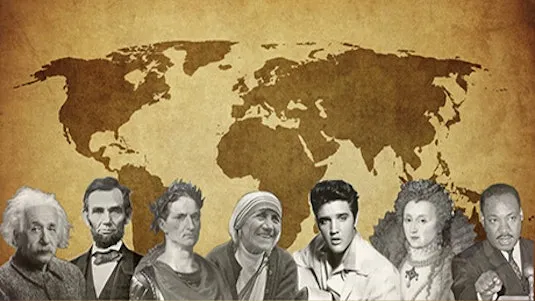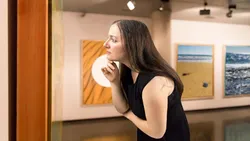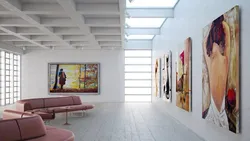
The Art of Teaching History: A Global Conversation for Secondary Educators 
Secondary educators are invited to join a global conversation on the art of teaching history. Through this dialogue, educators can explore how to engage students in the study of history, helping them to develop the skills needed to thrive in today's information society. By understanding the past, students can gain a better understanding of the world in which they live and their place in it. ▼
ADVERTISEMENT
Course Feature
![]() Cost:
Cost:
Free
![]() Provider:
Provider:
Coursera
![]() Certificate:
Certificate:
Paid Certification
![]() Language:
Language:
English
![]() Start Date:
Start Date:
22nd Sep, 2014
Course Overview
❗The content presented here is sourced directly from Coursera platform. For comprehensive course details, including enrollment information, simply click on the 'Go to class' link on our website.
Updated in [March 06th, 2023]
This course, The Art of Teaching History: A Global Conversation for Secondary Educators, provides an exploration of the importance of studying history and what it means to think historically. Participants will learn how to explain the historical process of questioning and analytical thinking, and create rigorous lesson plans that help students develop the skills that will serve them well in any academic discipline. Through this course, secondary teachers will gain an understanding of how to create engaging and meaningful history lessons that will help students understand the world in which they live and how they fit into it. Participants will also learn how to use a variety of resources to create engaging and meaningful history lessons. The course will also provide an opportunity for teachers to engage in a global conversation about the importance of teaching history.
[Applications]
Participants who complete this course will be better equipped to teach history in a way that encourages students to think critically and analytically. They will be able to create lesson plans that help students develop the skills necessary to succeed in the information society. Additionally, they will be able to help students understand the world in which they live and how they fit into it. Finally, they will be able to foster an appreciation for the importance of studying history.
[Career Paths]
1. History Teacher: History teachers are responsible for teaching students about the past and helping them develop the skills necessary to think critically and analytically about the world. They must be able to create engaging lesson plans that help students understand the importance of history and how it relates to their lives. As technology continues to evolve, history teachers must also be able to incorporate new technologies into their lessons to keep students engaged.
2. Curriculum Developer: Curriculum developers are responsible for creating and designing educational materials for teachers to use in their classrooms. They must be knowledgeable about the subject matter and be able to create materials that are engaging and relevant to the students. As technology continues to evolve, curriculum developers must be able to incorporate new technologies into their materials to keep students engaged.
3. Instructional Designer: Instructional designers are responsible for creating and designing instructional materials for teachers to use in their classrooms. They must be knowledgeable about the subject matter and be able to create materials that are engaging and relevant to the students. As technology continues to evolve, instructional designers must be able to incorporate new technologies into their materials to keep students engaged.
4. Educational Consultant: Educational consultants are responsible for providing advice and guidance to teachers, administrators, and other educational professionals. They must be knowledgeable about the subject matter and be able to provide advice and guidance that is relevant to the students. As technology continues to evolve, educational consultants must be able to incorporate new technologies into their advice and guidance to keep students engaged.
[Education Paths]
1. Bachelor of Arts in History: A Bachelor of Arts in History is a great way to gain a comprehensive understanding of the past and its impact on the present. This degree program typically covers a wide range of topics, including political, economic, and social history, as well as the history of art, literature, and religion. Students will learn how to analyze primary sources, interpret historical events, and develop critical thinking skills. This degree is becoming increasingly popular as more people recognize the importance of understanding the past in order to make informed decisions about the future.
2. Master of Arts in Education: A Master of Arts in Education is a great way to gain the skills and knowledge necessary to become an effective history teacher. This degree program typically covers topics such as curriculum design, instructional strategies, and assessment techniques. Students will also learn how to create engaging and meaningful learning experiences for their students. This degree is becoming increasingly popular as more teachers recognize the importance of teaching history in a way that is both engaging and meaningful.
3. Doctor of Education in Curriculum and Instruction: A Doctor of Education in Curriculum and Instruction is a great way to gain the skills and knowledge necessary to become an effective history teacher. This degree program typically covers topics such as curriculum design, instructional strategies, and assessment techniques. Students will also learn how to create engaging and meaningful learning experiences for their students. This degree is becoming increasingly popular as more teachers recognize the importance of teaching history in a way that is both engaging and meaningful.
4. Master of Arts in History: A Master of Arts in History is a great way to gain a comprehensive understanding of the past and its impact on the present. This degree program typically covers a wide range of topics, including political, economic, and social history, as well as the history of art, literature, and religion. Students will learn how to analyze primary sources, interpret historical events, and develop critical thinking skills. This degree is becoming increasingly popular as more people recognize the importance of understanding the past in order to make informed decisions about the future.
Course Provider

Provider Coursera's Stats at AZClass
Discussion and Reviews
0.0 (Based on 0 reviews)
Explore Similar Online Courses

Learning Vuejs

Interactive Computer Graphics with WebGL

Python for Informatics: Exploring Information

Social Network Analysis

Introduction to Systematic Review and Meta-Analysis

The Analytics Edge

DCO042 - Python For Informatics

Causal Diagrams: Draw Your Assumptions Before Your Conclusions

Whole genome sequencing of bacterial genomes - tools and applications

The Places of Teaching Artistry

Art 104: History of Western Art II


Start your review of The Art of Teaching History: A Global Conversation for Secondary Educators